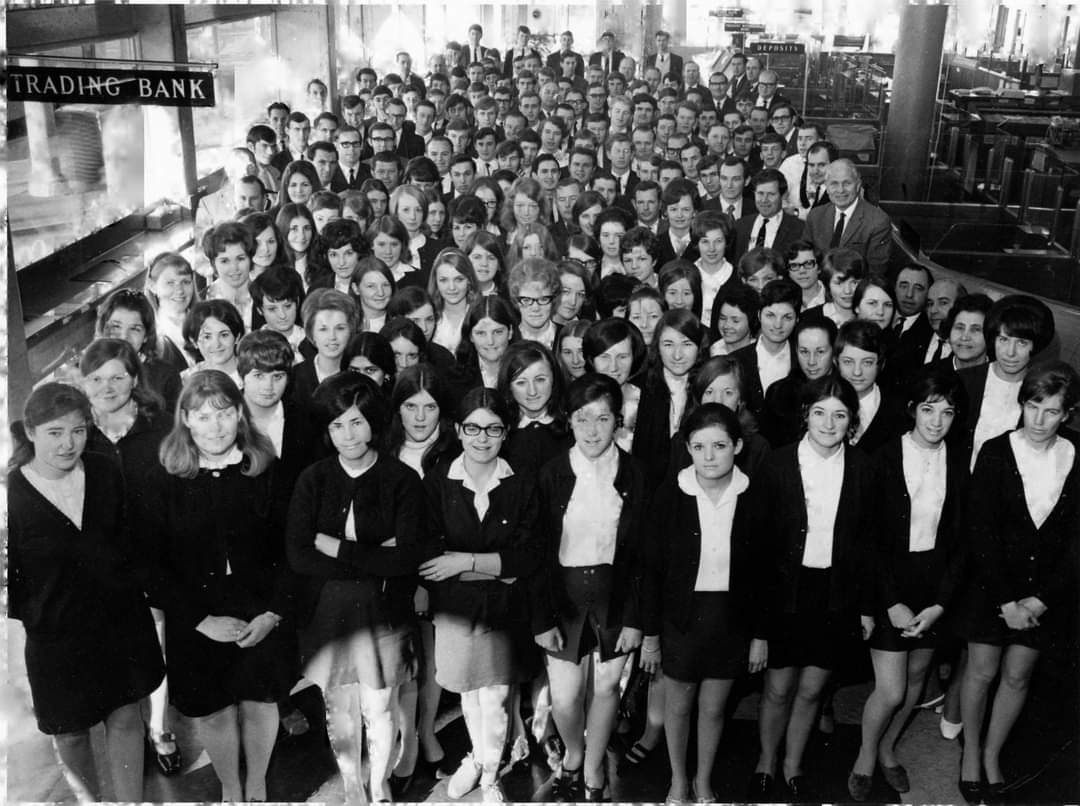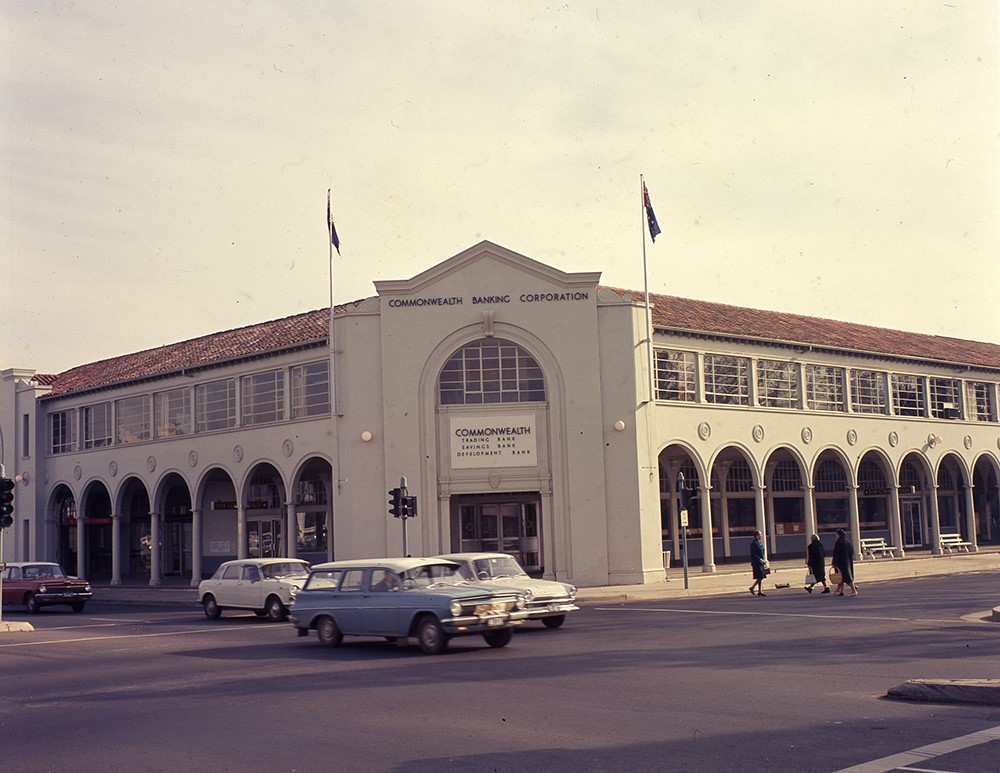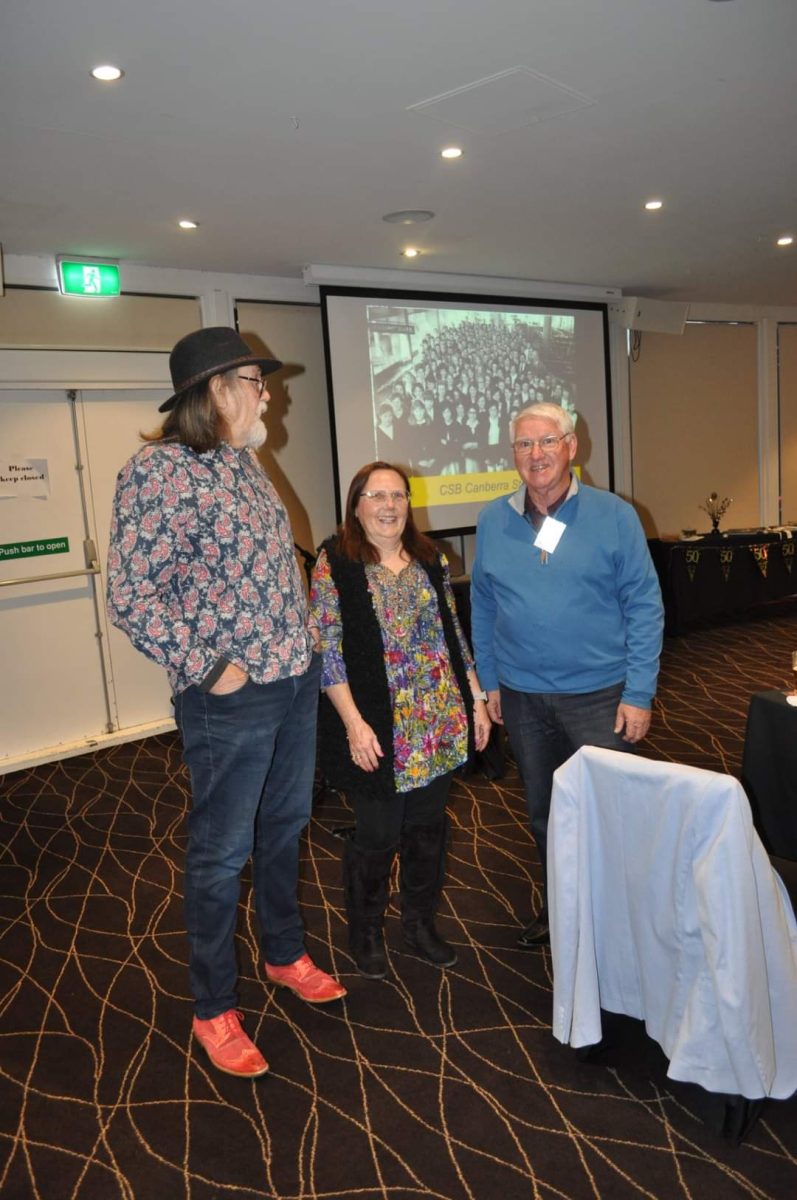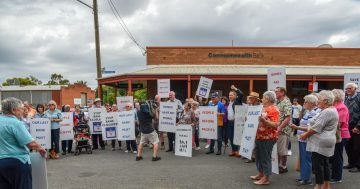
Did you work for the Commonwealth Bank of Australia in the mid-60s or into the 70s? Chances are you’re in this photograph – and you’re invited to a very special reunion. Photo: Supplied.
For “bankies”, Canberra was the place to live in the mid-1960s to early 1970s.
Although the Commonwealth Bank of Australia set up its first branch in the ACT in 1913, eight full branches operated in the nation’s capital during this span in the 60s and 70s including one at Queanbeyan and many sub-branches.
Most of the 350-plus employees needed to staff these branches were transferred from outside the ACT.
Not only did these men and women start their working life in the new city, they also discovered it wasn’t a half-bad place to live. Just about everything was laid on to encourage them to make the big move – and stay.
One of the “bankies”, Brian Purtle, is part of the organising committee to bring ex-employees back to Canberra for a Golden (1975-2025) Anniversary reunion next year.
Brian said it was a special time in Canberra for hundreds of “bankies”, many of whom became lifelong friends, married or just kept in contact – and these are the folk the reunion’s organising committee wants to track down.
He said living and working in the new city paid off for the “bankies” and the bank.
Handling cash was one of the biggest jobs in the early years – a time when staff worked behind the counter and the world of electronic banking was still decades away.
“Public service salaries were credited to a passbook account and every second Thursday, almost all public servants would use their lunch hour to line up at the bank, have their passbooks updated and then withdraw their salary in cash,” Brian said.
“Sometime over the next two to three working days, the cash would find its way back to the bank, via the tellers, from the various retail businesses and service providers.”

When the Commonwealth Bank branched out into Civic in the 1970s – and Holdens were out in front. Photo: Supplied.
He said most staff came from outside Canberra in those days.
“I came here to work in 1970 and stayed until 1988 when I went to work in private enterprise.
“You did everything back then. I started as a clerk, then I went behind the counter and did customer service back in the day before electronic banking kicked in.”
Even though the job brought them to Canberra, it seems the social life proved to be a great incentive for staff to stay.
“Richardson House was where a lot of us stayed and for us, it was the centre of our universe,” Brian said. “But it’s all townhouses now.”
In 1966, the bank built Richardson House because of a shortage of private accommodation in Canberra. The 88-bed hostel on Ainslie Avenue, Braddon, was reserved for CBA staff. It ran from 1966 until the late 1970s.

Three members of the Commonwealth Bank reunion committee, Bryan Rae, Kate Farrelly and Brian Purtle want as many former “bankies” as possible to sign up for the reunion. Photo: Supplied.
Brian said there was a lot of socialising in those days because most of the bank’s staff knew each other.
“This led to a very active community of people that gathered together outside of the working environment. There were regular social events, often held at Richardson House.
“The annual Xmas party was held at The Canberra Workers Club as it was one of the only venues around capable of holding such a large gathering.”
A lot of “bankies” married and settled in the ACT to raise their families and become valuable members of the wider community.
In July 2022, a small committee made up of Kate Farrelly, David Rolfe, Bryan Rae and Brian organised a reunion of 40 former residents of Richardson House. Such was its success, the same committee plus Ian Gresham started planning for the Golden Anniversary reunion.
Planned for September 2025, the reunion’s exact date and venue are to be finalised. Staff who worked up until the mid-1970s are invited.
If you were one of the “bankies” or know of a former staff member who would like to be part of the reunion, email Brian Purtle: brp77@bigpond.com













